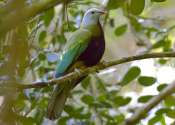A family of termites has been traversing the world's oceans for millions of years
Termites are a type of cockroach that split from other cockroaches around 150 million years ago and evolved to live socially in colonies. Today, there are many different kinds of termites. Some form large colonies with millions ...









